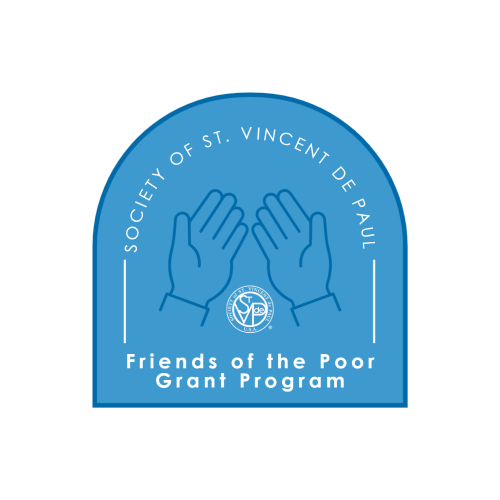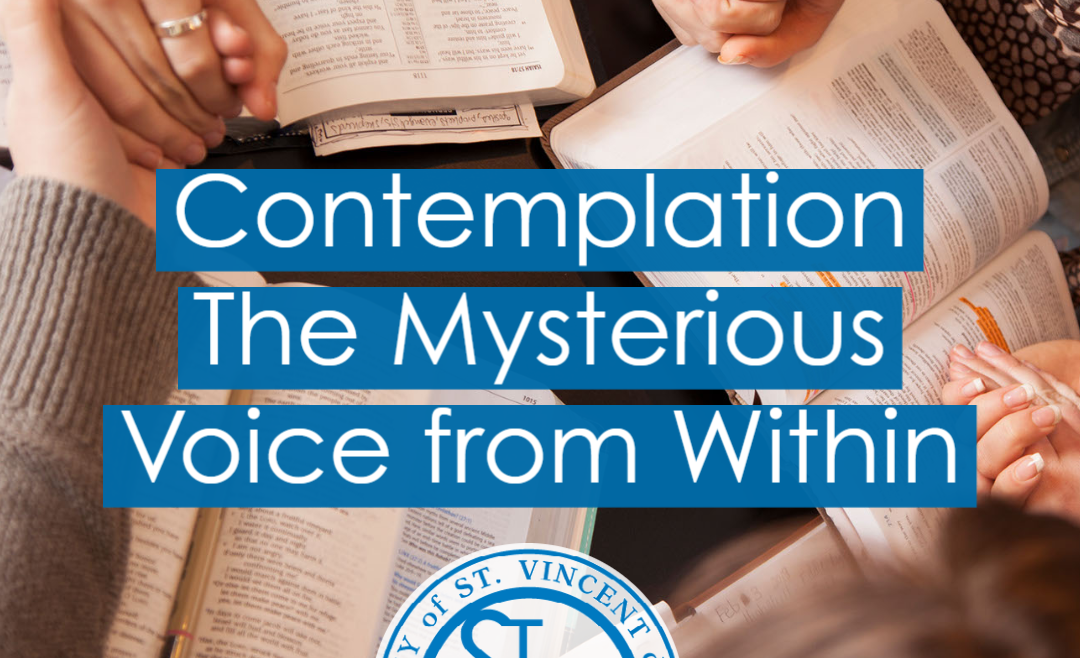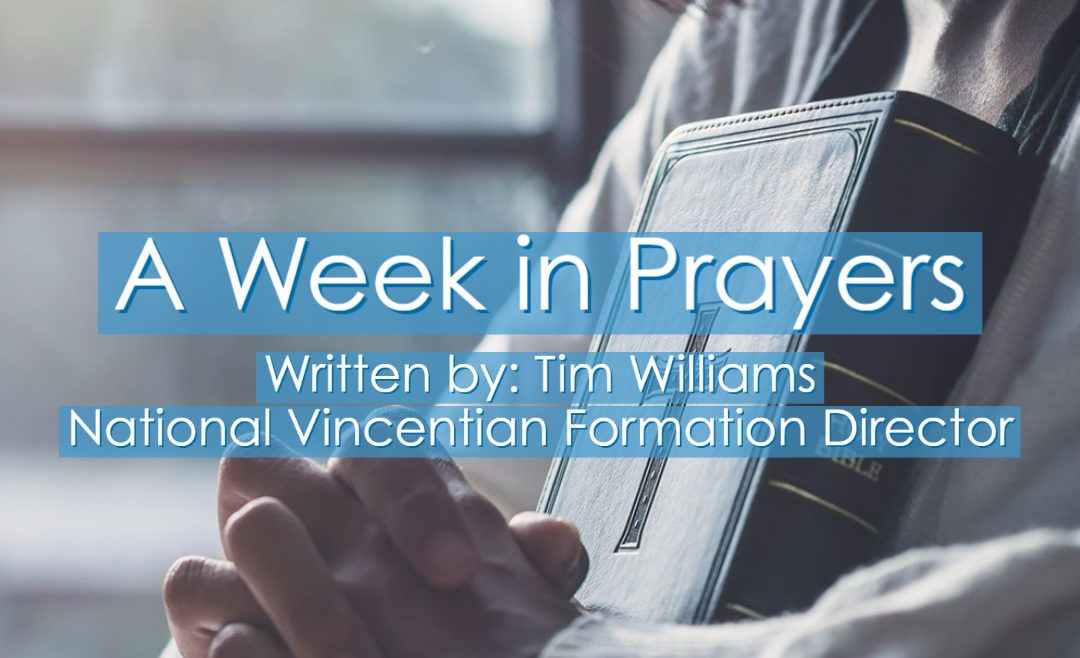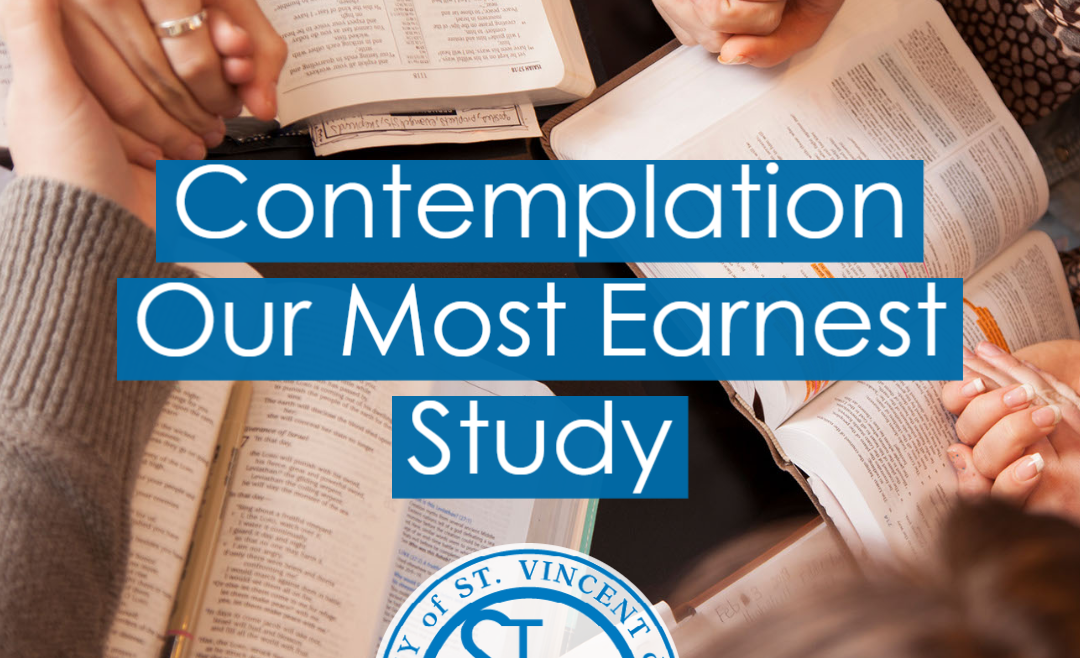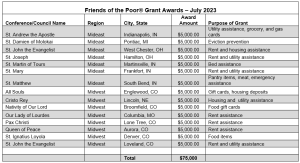
We received 52 grant applications totaling $260,000.00. Grant awards for this round total $75,000.
Through a simple application process, SVdP Conferences and District Councils can apply for up to $5,000 from the National Council’s Friends of the Poor® Fund. The Friends of the Poor® funds available to grant is normally limited to the amount raised and/or approved by the National Council budget process. Individual grant award amounts may vary from the application amount but will not exceed $5,000.
Grants are targeted to specific areas of need, above and beyond available Conference resources: assistance for rent/housing, utilities, food, clothing, medical, transportation, and baby/children needs. No systemic change projects.
The next round of FOP Grants will open on August 15 for the West and South Central Regions.

